
May 2022 — A focus group is a carefully planned discussion designed to obtain perceptions of a small group of people about a defined area of interest (e.g., downtown revitalization). Focus groups typically include seven to ten people who have some common characteristics that relate to the topic being discussed and who engage in conversation in a permissive, non-threatening environment. The discussion is conducted by a trained interviewer (moderator, facilitator). A focus group study usually consists of a minimum of three focus groups.
This section describes how to conduct focus group interviews as another way to gather information about your market and opportunities to strengthen the economic health of your business district. We provide an overview of how to conduct focus groups in your downtown market analysis work.
Conducting Focus Groups: An Overview
The focus group approach provides a qualitative alternative to survey research. It is based on the premise that attitudes and perceptions are developed in part by interaction with other people. It recognizes the danger of taking people’s perceptions for granted and provides a structure that promotes reflective thinking and self-disclosure. At the core of this research approach is the idea that people act differently in groups than when alone, which help uncover attitudes and opinions that may not be expressed by individuals.
When to Conduct Focus Groups
Conduct When:
- People have something to share (motivations)
- The goal is to understand human behavior
Do Not Conduct When:
- People are divided or angry
- The goal is to gather factual information
- The organization is trying to improve its image
Conducting focus groups requires six important considerations:
- Identifying the Project Focus
- Selecting Participants
- Preparing for Moderating & Facilitating
- Conducting Focus Group Discussions
- Analyzing the Data
- Communicating Results
In this section of the Toolbox, we will describe the best practices for each step in the process. We will also discuss each procedure in the context of solving the example questions presented in the hypothetical community, “Anytown”.
Anytown Example
The leaders of “Anytown” are interested in understanding and improving their downtown as a place to live, work, and recreate. They ask you to identify the various strengths, weaknesses and opportunities for improving the overall Downtown environment. You decide to conduct a focus group study by pulling together specific stakeholder groups.
Identifying the Project Focus
One of the most important decisions researchers and applied practitioners need to make is at the beginning of the research process. Deciding what the focus of the project will be. This decision defines the trajectory of all other choices. It is crucially important that you identify the core concepts you hope to understand and the information you are hoping to collect. Researchers refer to this process as conceptualization.
Conceptualization
Conceptualization refers to defining and specifying what a researcher or practitioner means by a specific term or word. Articulating what one means by a given concept helps establish the purpose of a research project and clarifies what is hoping to be measured and eventually understood. This process allows outsiders to see what the researcher is doing and how they are thinking about the central concepts.
Anytown Example
As you begin the process of designing your focus group study, you return to the central focus of the project, improving downtown as a place to live, work, and recreate. Specifically, you are interested in understanding how key stakeholder groups view living, working, and recreating in the downtown. You decide to pull together five stakeholder groups: hospitality industry professionals, downtown workers, downtown residents, young professionals, and college students.
Selecting Participants
Participants in each focus group should be similar in terms of who they are as a group (e.g., shoppers, business operators, property owners, etc.). Ideally, participants do not know each other or the moderator. As you prepare for your focus groups, you should consider some general rules of selection. First, you should set exact specifications of group participants with clear guidance for selection process and criteria. You will want to maintain control of the selection process and use the resources of the sponsoring organization in recruiting. You should pay special attention to the potential for bias to creep into the selection process. For example, avoid picking participants picked by memory or because they expressed concern. Do not select participants who are “clones” of the person doing the selection process. This will lead to a homogeneous group and will limit the diversity of attitudes and opinions and will lead to a narrow view of understanding. Most importantly, you should develop a pool of eligible participants and then randomly select those to participate in the focus group to help reduce bias in the selection process (see sampling strategies).
Important Considerations for Selecting Participants
Selection Strategies
- List piggyback
- On location
- Nominations
- Random phone screening
- Ads in newspapers and bulletin boards
Incentives
- Money (or gift certificates to downtown businesses)
- Food (or catered lunch)
- Gifts
- Positive, upbeat invitation
Notifications
- Set interview times
- Contact participants two weeks before meeting time
- Send a personalized invitation
- Contact each person the day before the focus group.
Anytown Example
Given your decision to conduct focus group interviews with the five stakeholder groups (i.e., hospitality industry professionals, downtown workers, downtown residents, young professionals, and college students), you decide to partner with key organizations in town to start to pull together a potential list of participants. For hospitality industry professionals and downtown workers, you reach out to the Anytown Chamber of Commerce. For college students, you work with the local college. For your young professionals, you reach out to the Anytown Young Professionals Facebook group. The final group, downtown residents, is bit trickier because there is no established list within town. To cull together a list of potential downtown residents, you use recruitment flyers posted in common space and high traffic areas in the downtown.
Preparing for Moderating & Facilitating
One of the most important parts of conducting focus groups is preparation. Well done focus group interviews require a trained moderator and thorough preparation. The moderator should have a plan, be a clear and welcoming communicator, and engage in active listening. Unprepared moderators or confusing communication can lead to useless information at best and frustration and fighting at worst.
Moderator Skills
- Ability to exercise mild, unobtrusive control of the conversation
- Has adequate know of the topic
- Appear like the participants
- Is well-versed in engaging all participants through in conversation
- Uses pauses (5-second pause) and probes (e.g., would you explain further?)
- Utilizes affirming nonverbal (e.g., head nodding) and verbal (e.g., “that’s good”) cues
- Incorporates subtle group control (e.g., pulling out expertise of participants, reducing dominant talkers, eliciting participation from shy group members, helping ramblers come to a point).
Focus groups should also include an assistant moderator. If the goal of the moderator is to facilitate the discussion, maintain control of the flow of the conversation, and ultimately, help the group arrive to answers to the underlying research questions, the assistant moderator is there to help with everything else – handling logistics, capturing the information, and monitoring recording equipment.
Assistant Moderator Skills
- Handles logistics
- Takes careful notes
- Monitors recording equipment
- Is mentally prepared
- Creates warm and friendly environment
- Observes the participants for seating arrangements
- Records the discussion through video, tape recording, and/or written notes
Expectations of the Assistant Moderator
Take responsibility for equipment
Ensure that needed equipment is available and working. This includes recorders, microphone, tapes, handouts, etc.
Take responsibility for refreshments
Arrange for food (either complete meals or snacks) and beverages to be available on time.
Arrange the room
Arrange chairs and table. Be attentive to background noises that would affect the audio recording as well as room temperature and lighting.
Welcome participants as they arrive
You are the host. Make participants feel welcome and comfortable.
Sit in designated location
Sit outside the circle, opposite the moderator and closest to the door. Greet those arriving late and find them a place to sit.
Take notes throughout the discussion
You are the designated notetaker. Make sure you are alert and taking copious notes throughout the discussion.
Operate recording equipment
Be familiar with the recording device.
Do not participate in the discussion
Talk only if invited by the moderator. Control your nonverbal actions no matter how strongly you feel about an issue.
Ask questions when invited
At the end of the discussion the moderator will invite you to ask questions of amplification or clarification.
Give an oral summary
Provide a brief oral summary (about 3 minutes). Invite participants to offer additions or corrections to the summary.
Ask Thank participantswhen invited
Thank participants and hand out the honorariums (if applicable)
Debrief with moderator
Discuss overall impressions, notable quotes, key ideas or insights presented, and how this group compared to other groups.
Give feedback on analysis and reports
Read reports and provide feedback.
Like other forms of research, question wording, order and flow matter when conducting focus groups. If a focus group does not have a clear and engaging introduction welcoming participants, informing them of the confidentiality of the conversation, and establishing ground rules, the discussion can go awry from the start. If questions are worded in ways that elicit simple, one-word responses or are unclear and confusing, participants may not engage in conversation in any meaningful way. If more sensitive questions are asked at the beginning before establishing comfort and rapport within the group, participants again may decide to disengage from meaningful conversation. And, if a clear and concise conclusion is not offered, participants may walk away confused and frustrated feeling like their time was wasted.
Introduction, Questions, & Conclusion
Introduction should include
- Welcome
- Overview and topic
- Assurance of confidentiality
- Ground rules
- First question
Questions
- Use open-ended questions and avoid closed-ended questions
- Do not ask “why” questions as they may elicit defensive responses
- Consider the order of your questions (e.g., introductory questions, focusing questions, transition questions, key questions, and ending questions)
Conclusion should include
- Summary with confirmation
- Review purpose and ask anything has been missed
- Thanks and dismissal
An often overlooked element of focus groups is location. Although focus groups require a clear plan and prepared and experienced moderators, the wrong location for the discussion can undermine what would otherwise be a successful focus group interview. You should select a location that is free of distractions, neutral and comfortable for participants, and where participants are facing one another.
Location
- Neutral
- Comfortable
- Convenient
- Free from distractions
- Participants facing each other
Anytown Example
Now that you have started to recruit your participants for each of the five stakeholder groups, you are ready to identify the moderator, assistant moderator, and location. You decide to work with the local Extension Educator, who is trained in group facilitation and has experience moderating focus group interviews. You decide to be assistant moderator, taking care of interview logistics, and you find a large, private conference room located just outside the downtown in a city-owned office. Finally, you and the moderator review the goal of the project, establish the introduction and conclusion, and design a semi-structured interview schedule to help guide the conversation for each of the five groups.
Conducting the Focus Group Discussion
The first few moments in focus group discussion are critical. In a brief time the moderator must create a thoughtful, permissive atmosphere, provide the ground rules and set the tone of the discussion. Much of the success of group interviewing can be attributed to the development of this open environment. The recommended pattern for introducing the group discussion includes: (1) The welcome, (2) The overview and topic, (3) The ground rules and (4) The first question.
Anytown Example: Sample Introduction
Good afternoon and welcome to our session. Thank you for taking the time to join our discussion of how we can make downtown Milwaukee a more attractive environment for visitors. My name is [INSERT] and I represent [INSERT]. Assisting me is [INSERT]. We are attempting to gain information about how to improve the visitor experience of business, convention and leisure travelers to the City. We have invited key hospitality industry professionals who have firsthand knowledge of Anytown’s visitor.
You were selected because you have certain things in common that are of particular interest to us. You are all employed in the hospitality industry and manage employees that come in daily contact with visitors to Anytown. We are particularly interested in your views because you are representative of Anytown’s tourism leadership.
This afternoon we will be discussing ways to improve the visitor’s experience. For example, we will identify what kinds of retail, service, dining and entertainment amenities might be missing downtown. We will also discuss how we can more effectively market to the visitor. There are no right or wrong answers but rather differing points of view. Please feel free to share your point of view even if it differs from what others have said.
Before we begin, let me remind you of some ground rules. Please speak up, but only one person should talk at a time. We’re tape-recording the session because we don’t want to miss any of your comments. If several are talking at the same time, the tape will get garbled and we’ll miss your comments. We will be on a first name basis, and in our later reports there will not be any names attached to comments. You may be assured of complete confidentiality. Keep in mind that we’re just as interested in negative comments as positive comments, and at times the negative comments are the most helpful.
Our session will last about an hour and a half, and we will not be taking a formal break. Well, let’s begin. We’ve placed name cards on the table in front of you to help us remember each other’s names. Let’s find out some more about each other by going around the room one at a time. Tell us your name and your work affiliation.
Focus group interviews can yield powerful information. To get meaningful information during focus groups, you should must consider types of questions, question wording, question order, and flow.
Anytown Example: Sample Focus Group Questions
The following focus group questions were designed to obtain the perceptions of several consumer segments that use Downtown Anytown as a place to live, work and recreate. Each set of questions is intended to look at various strengths, weaknesses and opportunities for improving the overall downtown environment. Several questions are also intended to explore the entrepreneurial environment in Anytown’s Downtown.
Hospitality Industry Professionals
1. Think back to a situation or situations when you have heard visitors talk about their visit to Anytown. What positive comments about Anytown do you recall?
2. Think back to another situation what negative comments about Anytown were shared with you. What do you recall?
3. Is there a difference between the needs of business travelers and leisure travelers? If so, how do they differ? What kind of amenities such as specific retail services, dining and entertainment would attract more visitors/customers to downtown Anytown?
4. Compared to other cities, what amenities do you think are missing in downtown Anytown; in other words, are there specific products, services or experiences that visitors/customers are repeatedly asking for?
5. Are there any special services or events you offer your visitors/customers? If so, what kind? What kind of packages do you offer your customers and are they effective in improving their experience here in Anytown?
6. What kind of local initiatives (in terms of products AND collaborations/network) would help you to improve your business?
7. All things considered, if you could change one thing in Anytown, what would it be?
Downtown Workers
1. For a moment, think about the Greater Anytown region. Think about places like Othertown, Thattown, and Whosetown. What do you feel are the advantages of working in Downtown Anytown compared to other surrounding communities? What are some potential disadvantages?
2. Think about other cities around the nation where you may have worked, visited, or perhaps considered as a place of employment. What characteristics of those cities make them more desirable than Downtown Anytown as a place to work? What characteristics make them less desirable?
3. In thinking about these ideal characteristics, consider the future of Downtown Anytown. From your perspective as a downtown employee, what could be done in Downtown Anytown to create your ideal workplace?
4. If you were to start your own business, what advantages does Downtown Anytown possess as a place to locate a business over other areas?
5. What do you feel are some potential barriers to attracting new businesses into Downtown Anytown or retaining existing businesses?
Downtown Residents
1. For a moment, think about the Greater Anytown region. Think about places like Othertown, Thattown, and Whosetown. What do you feel are the advantages of working in Downtown Anytown compared to other surrounding communities? What are some potential disadvantages?
2. Think about other downtowns around the region, state or nation where you may have lived, visited, or perhaps thought about living. What characteristics of those downtowns make them more desirable than Anytown as a place to live? What characteristics make them less desirable?
3. In thinking about these ideal characteristics, consider the future of Downtown Anytown. From your perspective as a downtown resident, what could be done in Downtown Anytown to create your ideal home?
4. Consider the amenities present in Downtown Anytown. Amenities could include entertainment and cultural venues, dining establishments, and shopping opportunities. Which amenities most contribute to your quality of life in Downtown Anytown? What additional amenities would improve Downtown Anytown as a place to live?
5. From your perspective as a resident, what do you feel are some potential barriers to attracting new residents into Downtown Anytown or retaining existing residents?
Young Professional
1. If you were going to describe Downtown Anytown to a new area resident in their 20’s or 30’s, what words or phrases would you use?
2. From your perspective as a person in your 20’s or 30’s, what do you feel are some potential barriers to attracting additional young professionals into Downtown Anytown to work, live or play?
3. Think about other downtowns around the nation where you may have lived, worked, visited, or perhaps thought about living. What characteristics of those downtowns might make them more desirable than Downtown Anytown as a place to live, work or recreate? What characteristics might make them less desirable?
4. In thinking about these ideal characteristics, consider the future of Downtown Anytown . From your perspective as a person in your 20’s or 30’s, what steps could Downtown Anytown take to attract more young workers seeking social, cultural and employment opportunities?
5. Many people in their 20’s or 30’s have considered starting their own business. If you were going to start your own business, what aspects of Downtown Anytown make it a good place to start a business? What aspects make it less desirable?
College Students
1. New students come to Anytown every semester. If you were describing Downtown Anytown to new students, what words or phrases first come to mind?
2. For a moment, think about your college experience in Anytown. As part of your college experience, think about cultural, social and shopping opportunities in the Downtown. How have these opportunities in Downtown Anytown contributed to your overall college experience?
3. Think about other downtowns around the nation where you may have lived, visited, or perhaps thought about living after college. What characteristics of those cities make them more desirable than Downtown Anytown as a place to live or work? What characteristics make them less desirable?
4. As a student, consider your vision of an ideal Downtown Anytown for social, cultural and shopping opportunities. From your perspective as a student, what could be done to improve Downtown Anytown in any or all three areas?
At some point, you will be graduating from your college. You will be faced with a choice to either stay in the area or leave for opportunities elsewhere. What aspects of Anytown would convince you to remain in the area? What aspects would influence your decision to leave?
Capturing the Discussion & Analyzing the Data
Once you have established your focus group intro, questions, and conclusion and identified a moderator, assistant moderator, and location, you are ready to conduct your focus group interviews and begin to analyze your data. Analysis is not something that happens after the focus groups are done. It starts during the focus group discussion.
Follow a Systematic Analysis Process
Start while still in the group
- Listen for inconsistent comments and probe for understanding
- Listen for vague or cryptic comments and probe for understanding
- Consider asking each participant a final preference question
- Offer a summary of key questions and seek confirmation
Immediately after the focus group
- Draw a diagram of seating arrangement
- Spot check tape recording to ensure proper operation
- Conduct moderator and assistant moderator debriefing
Also immediately after, prepare a summary report
- Consider narrative style versus bulleted style
- Use a few quotes to illustrate
- Sequence could be question by question or by theme
- Share report for verification with other researchers
- Revise and finalize report
- Note themes, hunches, interpretations and ideas
- Compare and contrast this focus group to other groups
- Label and file field notes, tapes and other materials
Soon after the focus group analyze individual focus group
- Make backup copy of tapes and send tape to transcriber for computer entry if transcript is wanted
- Analyst listens to tape, reviews field notes and reads transcript if available
- Prepare report of the individual focus group in a question-by-question format with amplifying quotes
- Share report for verification with other researchers who were present at the focus group
Within days analyze the series of focus groups
- Compare and contrast results by categories of individual focus groups
- Look for emerging themes by question and then overall
- Construct typologies or diagram the analysis
- Describe findings and use quotes to illustrate
Anytown Example
As assistant moderator, your analysis process start during the first focus group. You take detailed notes and listen for inconsistence messages, vague comments. You note verbal and nonverbal interactions. You start to identify themes and patterns in responses. Your analysis continues as soon as the first focus group ends by reviewing notes, debriefing with the moderator, and writing up a summary report organized question-by-question of what occurred. You follow this up with continued review of notes, report summary, and transcripts of the focus group looking for emerging themes. You continue to do this as each focus group is completed and new data is added to the project.
Communicating Focus Group Results
Use a communications strategy
Rather than thinking of “a report,” think of what type of communication strategy is needed. A variety of reports might be used to keep people informed. Consider: email messages, postcards, phone calls, bulleted summaries, selected quotes, moderator comments, mid-project or final project reports, personal visits by members of the research team, etc.
Use an appropriate reporting style that the client finds helpful and meets expectations
Ask users what kind of report would be helpful to them. What information are they looking for? What are the expectations and traditions of reports within the organization?
Strive for enlightenment
Reports should raise the level of understanding of the client. The purpose is more to enlighten and convey new insights as opposed to repeating common knowledge which is already known by the sponsor of the study.
Make points memorable
Help client remember the key points by limited the number of points you highlight. Too many points diminish overall impact. Begin with most important points and follow with lesser important points.
Use narrative or bulleted format
Written reports can follow either a narrative format or a bulleted format. Don’t surprise the client with a format different from what is expected.
Give thought to the oral report
Oral reports should be brief, clear and concise. In addition, oral reports should allow opportunity for questions, indicate why the study is important and why the findings are meaningful, begin with the most important findings and engage the listener in an active manner.
About the Toolbox and this Section
The 2022 update of the toolbox marks over two decades of change in our small city downtowns. It is designed to be a resource to help communities work with their Extension educator, consultant, or on their own to collect data, evaluate opportunities, and develop strategies to become a stronger economic and social center. It is a teaching tool to help build local capacity to make more informed decisions.
This free online resource has been developed and updated by over 100 university educators and graduate students from the University of Wisconsin – Madison, Division of Extension, the University of Minnesota Extension, the Ohio State University Extension, and Michigan State University – Extension. Other downtown and community development professionals have also contributed to its content.
The toolbox is aligned with the principles of the National Main Street Center. The Wisconsin Main Street Program was a key partner in the development of the initial release of the toolbox. One of the purposes of the toolbox has been to expand the examination of downtowns by involving university educators and researchers from a broad variety of perspectives.
The current contributors to each section are identified by name and email at the beginning of each section. For more information or to discuss a particular topic, contact us.

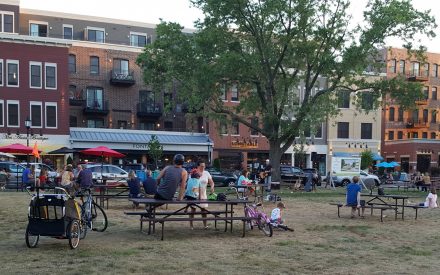



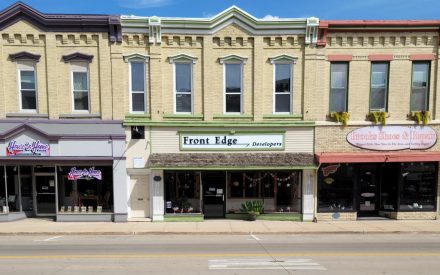


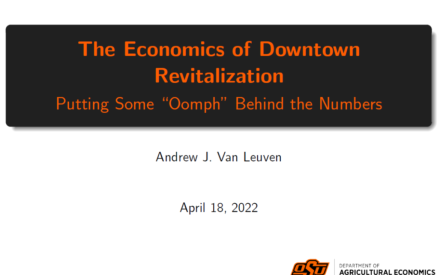

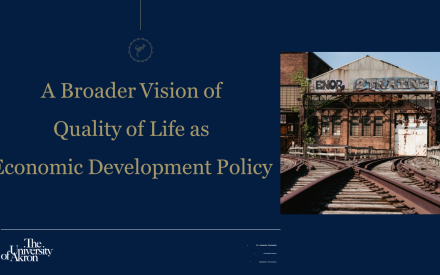

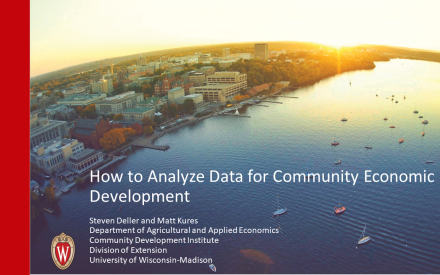 How to Utilize Data for Community Economic Development (Part II)
How to Utilize Data for Community Economic Development (Part II) How to Access Data for Community Economic Development (Part I)
How to Access Data for Community Economic Development (Part I) Developing Questions for Focus Group Interviews
Developing Questions for Focus Group Interviews


